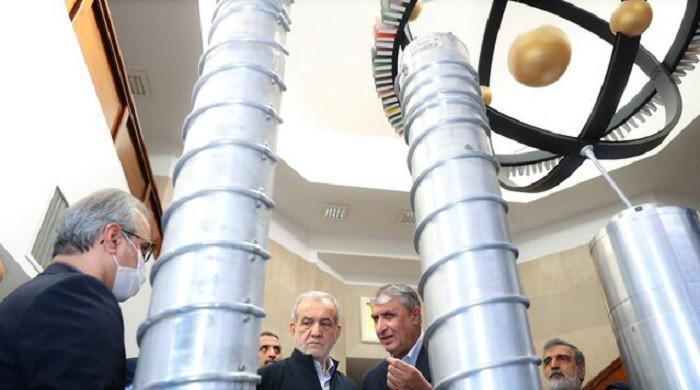Iran said on Monday that there would be no new nuclear talks with the United States if they were conditioned in Tehran abandoning its uranium enrichment activities.
Washington and Tehran were engaged in several negotiation cycles seeking to conclude an agreement on the nuclear program of the Islamic Republic, but Israel derailed the talks when he launched a wave of surprise strikes on his regional sworn enemy, affecting 12 days of war.
Since the end of hostilities, Iran and the United States have reported the desire to return to the table, although Tehran has declared that it will not give up its right to peaceful use of nuclear energy.
“If the negotiations must be conditioned on stopping enrichment, such negotiations will not take place,” said Ali Velayati, adviser to the supreme chief, Ayatollah Ali Khamenei, said the Irna press agency.
The remarks occurred after the spokesman for the Ministry of Foreign Affairs, Esmaeil Baqaei, said that Iran had not set a date for any meeting with the United States.
“For the moment, no date, specific time or location has been determined on this subject,” said Baqaei about the plans for a meeting between the first Iranian diplomat, Abbas Araghchi and the American envoy Steve Witkoff.
Araghchi and Witkoff had previously not concluded an agreement after five cycles of talks that started in April and were the highest contact between the two countries since Washington abandoned a historic nuclear agreement in 2018.
The negotiations mediated by Omani were interrupted while Israel launched its surprise attack on Iranian nuclear and military installations on June 13, the United States later joining its ally and limited strikes.
“We were serious in diplomacy and in the negotiation process, we entered good faith, but as everyone saw, before the sixth round, the Zionist regime, in coordination with the United States, committed a military assault against Iran,” said Baqaei.
Iranian President Masoud Pezeshkian said in a statement on Monday that Iran “supports diplomacy and constructive commitment”.
“We continue to believe that the window of diplomacy remains open, and we will seriously continue this peaceful path.”
Israel and Western nations accuse Iran of pursuing nuclear weapons, an accusation of Tehran has always denied.
Although it is the only power of non -nuclear weapons to enrich uranium with a purity of 60% – near the level necessary for an warhead – the UN atomic energy watchdog said that it had no indication that Iran was working to arm its stocks.
Sanctions
Israel’s offensive, which she said was aimed at thwarting a nuclear threat from the Islamic Republic, killed nuclear scientists and high -level military officers, but has also reached residential areas.
The United States has launched its own strike set on June 22, hitting the enrichment of Iranium from Iranium in Fordo in the province of Qom south of Tehran, as well as nuclear sites in Isfahan and Natanz.
Iran responded with missile and drone attacks targeting Israeli cities and attacked an American base in Qatar in retaliation for Washington strikes.
The extent of damage to the nuclear program of the Islamic Republic remains unknown, and Baqaei said that it was “still investigating”.
Pezeshkian, in his last declaration, warned “even more overwhelming reprisals” to any “new attack against Iranian territory”.
Baqaei said on Monday that Iran remained in touch with Great Britain, France and Germany, the three European parties in the 2015 nuclear agreement from which the United States then withdrew.
Europeans have threatened to trigger the “snapback” mechanism of the agreement, which allows the reimposure of the UN sanctions in the event of non-compliance.
Baqaei said Tehran was “in continuous contact with these three countries”, but added that he “cannot provide an exact date” for the next meeting with them.
There was “no legal, moral or political basis” to re -impose sanctions, according to Baqaei, because Iran was still attached to the 2015 agreement.
He added that such a decision would be encountered with an “appropriate and proportionate” response, following Iranian threats to leave the world nuclear non-proliferation treaty.
After the United States withdrew from the 2015 agreement with Iran in Donald Trump’s first term as president, Tehran began to withdraw his commitments to the agreement, which limited its atomic activities in exchange for sanctions.
“The Islamic Republic of Iran still considers itself as a member of the JCPOA,” said Baqaei, referring to the 2015 agreement.




